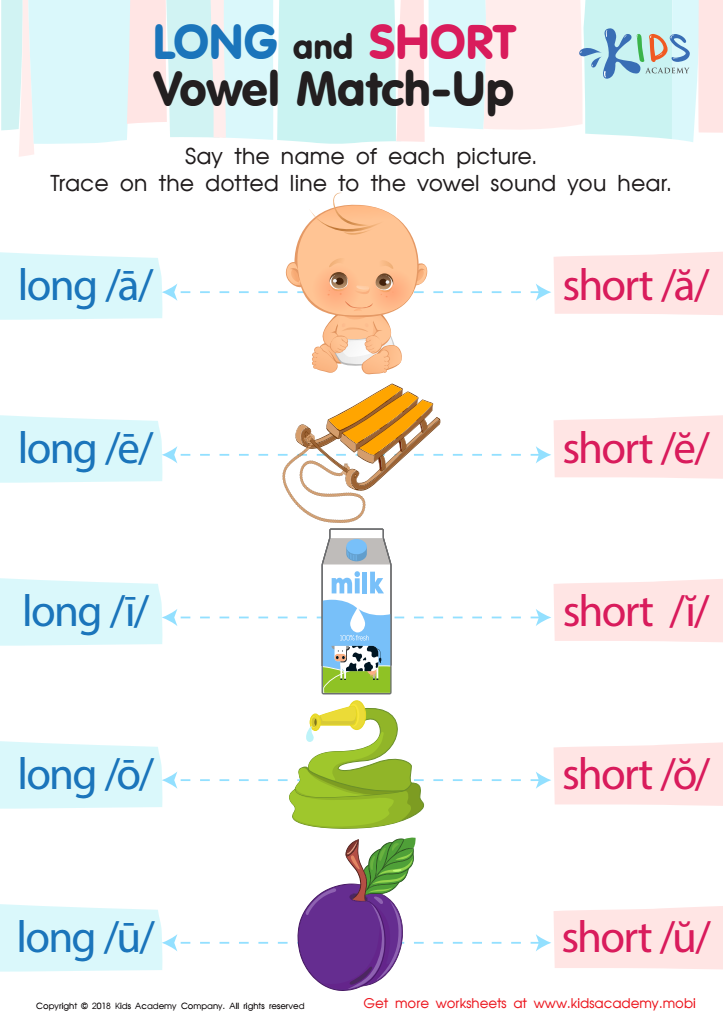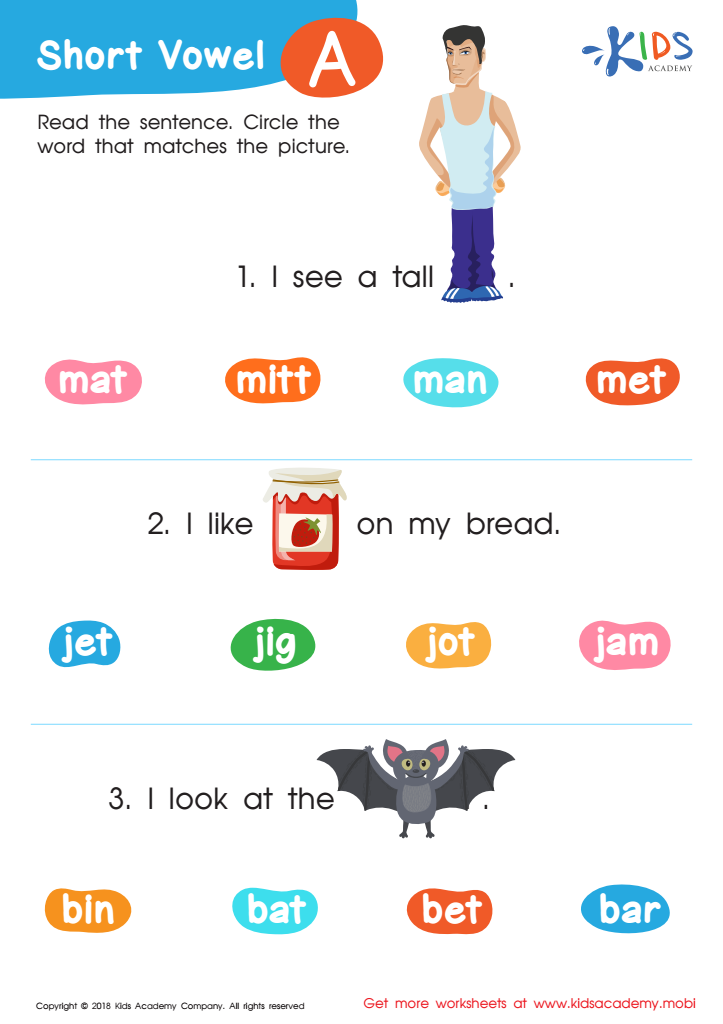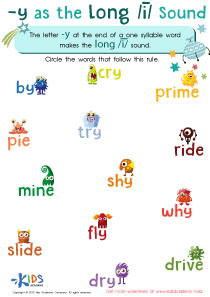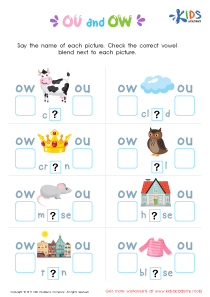Vowel Recognition Normal Short Vowels Worksheets for Ages 6-9
5 filtered results
-
From - To
Introduce children aged 6-9 to the fundamental skill of recognizing short vowels with our engaging and expertly designed worksheets. These printables focus on helping young learners identify, pronounce, and use short vowels correctly within words. Through a variety of fun and interactive exercises, children will practice differentiating between vowels and improving their reading and phonics abilities. Perfect for classroom use or at-home learning, these worksheets foster confidence and build a solid foundation in literacy. Ensure your child's success in reading with our vowel recognition worksheets, tailored specifically for early grade students.


Long and Short Vowel Match up Reading Worksheet


Short Vowel /a/ Worksheet


Short Vowels /e/, /i/, and /u/ Worksheet


Short Vowel Eggs Worksheet


Long and Short Vowel Sentences: Assessment Worksheet
Vowel recognition of normal short vowels is a fundamental skill for young children aged 6-9 because it is central to their reading and writing development. Short vowels, such as /a/ in "cat" or /e/ in "bed," occur frequently in English words, forming a crucial component of phonemic awareness. When children accurately recognize and articulate these sounds, they develop the foundational phonological skills needed for decoding words, which is a primary step toward fluent reading.
Proficiency in vowel recognition directly influences a child’s ability to spell. Knowing the distinct short vowel sounds helps in correctly correlating sounds to written letters (phonics), which is essential in sounding out words during both reading and writing. This builds a child's confidence and interest in literacy activities.
For teachers and parents, focusing on vowel recognition can help identify early reading challenges. If a child struggles with short vowels, they may need targeted phonics instruction, intervention, or practice to prevent future literacy issues. Moreover, mastering these sounds supports clearer verbal communication and better comprehension skills, equipping children with tools to succeed academically and in everyday interactions.
Thus, parents and teachers should prioritize vowel recognition for young learners to create a robust educational foundation, ensuring a smoother and more enjoyable journey through the early stages of literacy.
 Assign to My Students
Assign to My Students

















